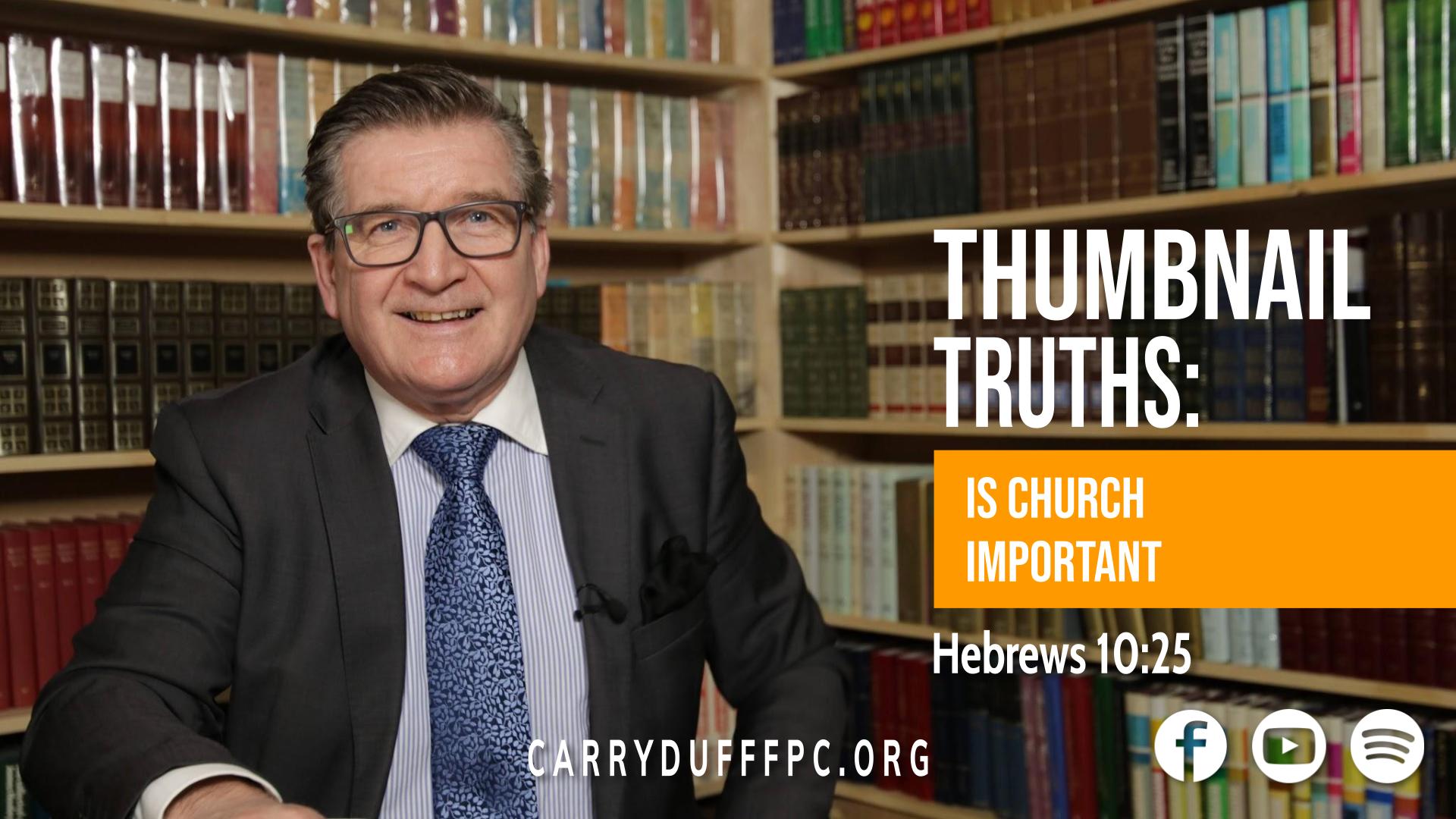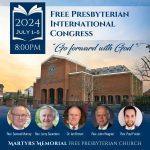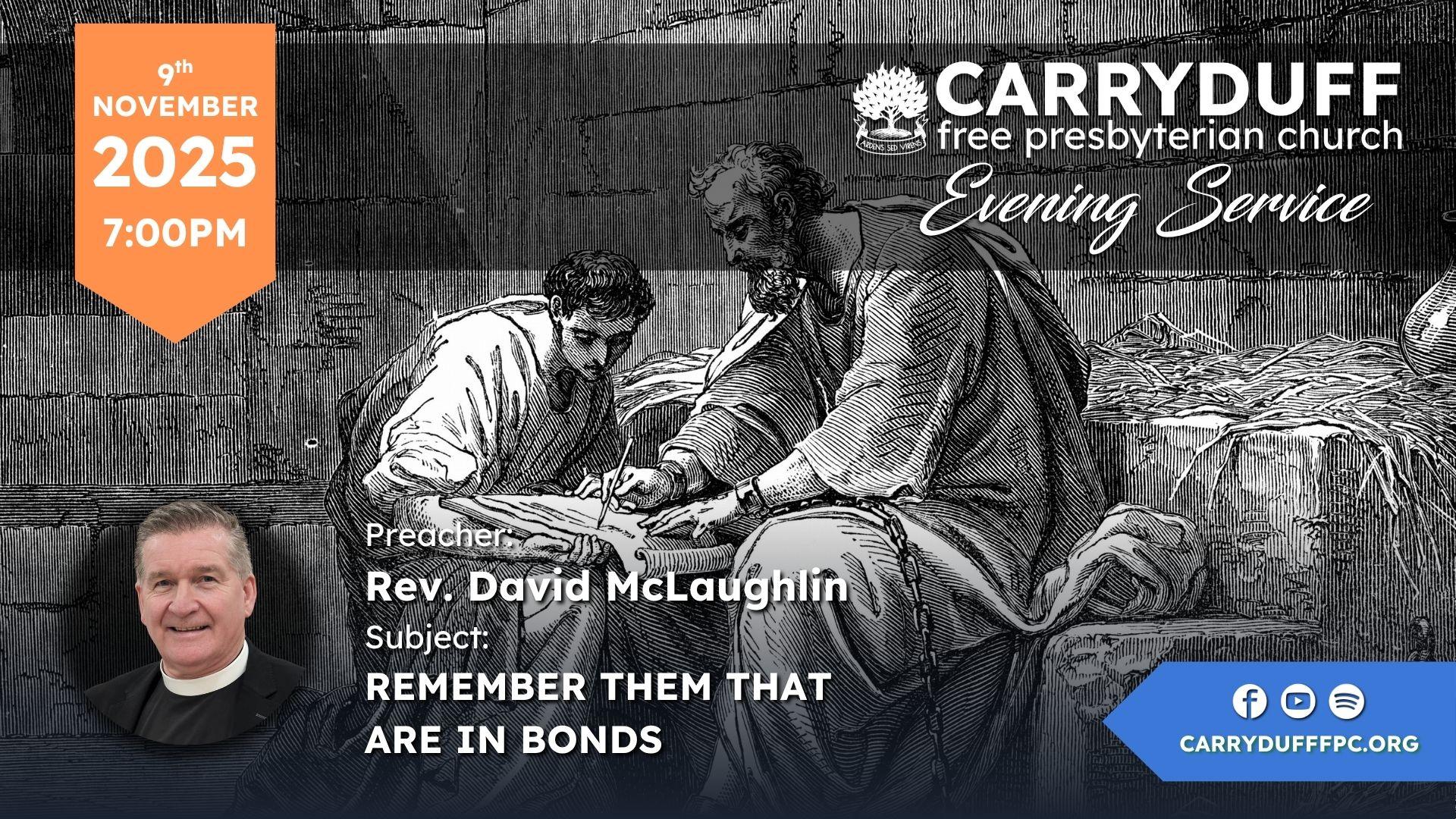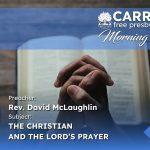Date: SUN 11:30 AM 4th May 2025
Preacher: Rev. David McLaughlin
Bible Reference: Hebrews 10:25
Not forsaking the assembling of ourselves together, as the manner of some is; but exhorting one another: and so much the more, as ye see the day approaching.
Sermon Summary
This sermon, delivered by Rev. David McLaughlin, tackles the vital question of why Christians must prioritize church attendance, drawing from Hebrews 10:25: “Not forsaking the assembling of ourselves together, as the manner of some is; but exhorting one another: and so much the more, as ye see the day approaching.” Concluding a series titled “The Christian and…,” the message underscores the biblical, practical, and spiritual imperatives for regular churchgoing, confronting modern challenges to Christian commitment head-on.
Biblical Context and Foundation
Hebrews 10:25 is rooted in the context of early Jewish Christians facing brutal persecution, both physical and verbal, for their faith. Taunted for their small gatherings compared to synagogue crowds and questioned about their lack of a temple or priesthood, they were tempted to revert to Judaism. Paul, guided by the Holy Spirit, wrote Hebrews to fix their focus on Jesus Christ, the supreme High Priest and sufficient sacrifice for sin.
Key verses set the stage for the call to assemble:
- Hebrews 10:12: Jesus’ one-time sacrifice for sins, followed by His seating at God’s right hand, proves its eternal efficacy.
- Hebrews 10:19-21: Believers gain bold access to God through Christ’s blood, with Jesus as their High Priest.
- Hebrews 10:22-24: Paul issues three commands:
- Draw near to God in worship with sincerity (v. 22).
- Hold fast to faith without wavering (v. 23).
- Consider one another to spur love and good deeds (v. 24).
Verse 25 then commands believers not to abandon gathering together, a direct call to remain loyal to the local church, grounded in the privilege of approaching God through Christ’s sacrifice.
Why Church Attendance Matters
The sermon stresses the urgency of this message amid declining church attendance in the United Kingdom, particularly in Protestant, Unionist, and Loyalist areas. Three modern evils fuel this decline:
- Declension: Churchgoing is plummeting, with closures rampant. In Belfast’s Shankill area, only 1 in 100 people regularly attend church, a pattern echoed across the UK.
- Individualism: Many claim they can worship God alone at home, via books, or online sermons, rejecting the need for church. This mindset, labeled as devil-inspired, defies God’s command and mirrors the rebellion of Judges 17:6, where “every man did that which was right in his own eyes.”
- Consumerism: Some treat church like a product, shopping for one that suits their preferences. Many evangelical churches cater to this, diluting the gospel to attract crowds, neglecting the full truth of Christ’s person and work.
Legitimate absences—illness, disability, work, distance, or family holidays—are acknowledged, but these are exceptions. The norm is faithful attendance at a Bible-believing church. Concern is raised about churches in Northern Ireland and the UK where false preachers reject core doctrines like Scripture’s inspiration, Christ’s deity, atonement, resurrection, heaven, and hell. This apostasy, paired with sermons on secular issues like climate change or inclusivity, drives people away. A call for repentance among clergy to restore gospel preaching and Reformation truths, like the five solas, is issued with urgency.
The Command to Attend Church
Hebrews 10:25 is a clear divine mandate: do not forsake assembling together. This command springs from a desire born of the new birth (2 Corinthians 5:17), creating a hunger for God’s Word and worship, like a baby craving milk (1 Peter 2:2). This desire fuels devotion and duty, compelling faithful church attendance.
“Assembling” refers to regular church gatherings—Sunday services, prayer meetings, Bible studies. The early church modeled this in Acts 2:42, steadfastly engaging in doctrine, fellowship, breaking bread, and prayer. Individualistic worship is unbiblical. A fire analogy illustrates the risk of neglect: a coal removed from the fire cools and dies out, just as Christians who skip church lose spiritual warmth, identity, and community, falling into carnality and apathy.
The Benefits of Gathering
Church attendance is not just commanded—it’s beneficial. The phrase “exhorting one another” in Hebrews 10:25 highlights mutual encouragement. Believers’ presence, words, and prayers strengthen each other, especially under persecution, fulfilling the call to provoke love and good works (v. 24).
The church is a “hospital for sick souls,” God’s primary channel for blessing His people. Jesus promises His presence where even two or three gather in His name (Matthew 18:20). As part of Christ’s body, every member’s contribution is vital. Attendance is an act of love toward God and fellow believers, fostering growth through preaching (Romans 10:17). Excuses like small church sizes, family time, pleasure, or work are challenged—worship must take precedence over these.
Urgency in the Last Days
The sermon closes with a pressing call to attend church “so much the more, as ye see the day approaching.” This “day” refers to the last days and Christ’s return, bringing judgment and salvation. Matthew 24:12 warns that abounding iniquity will cool the love of many, a reality seen in today’s complacency, bitterness, and complaints among Christians.
With opposition and wickedness rising, loyalty to Christ, His gospel, and His people is critical. Church attendance displays this loyalty, preserving spiritual identity and community. Believers will one day account to Christ for their faithfulness, including church attendance. A sobering question is posed: what will professing Christians say when asked why they neglected a faithful church?
Conclusion
This sermon is a fervent call to prioritize church attendance as a divine command, a beneficial practice, and an urgent need in the last days. Rooted in Christ’s sufficient sacrifice, it challenges individualism, consumerism, and laziness. Legitimate absences are noted, but the norm is unwavering commitment to a gospel-preaching church. A plea for clergy to repent and restore faithful preaching echoes loudly, as does the warning to remain loyal to Christ as His return nears. The message urges believers to gather faithfully, worship, hear the Word, and encourage one another, preparing for the day of examination before God.
Subscribe to the podcast here:
Spotify Podcasts | Apple Podcasts | Pocket Casts
Email | RSS | more information here








